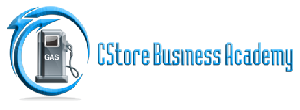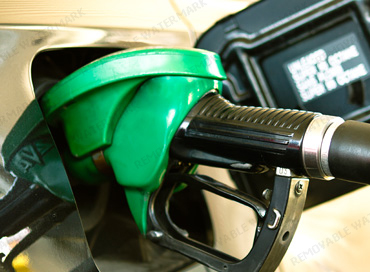There are many ways to find gas stations, conv. stores that are for sale in your area.
5 Offline ways are:
You can contact
- Through Local business brokers (Some national and some local, two of the major national brokerage companies are Sunbelt and Nationwide business brokers, local or statewide would like Gas Station USA brokers in FL)
- through Local commercial real estate agents
- through Local newspaper classified
- through Local oil and fuel Jobbers/wholesaler
- Through Vendors (this works only if you are already in this line of business)
now let’s talk about the ways you can find businesses for sale online
5 online ways are:
There are some very reputable websites you can go and check for sale listings; then there are also online auction houses that sell gas stations among other businesses.
First check out bizbuysell.com, this is the site similar to realtor.com for home real estate, in this site business brokers list their businesses that are for sale.
then there is NRC.com, is it a more for corporate stores that are for sale, and this site only focuses on gas stations and c stores that are for sale.
Craigslist ads yes you can find them under “business for sale.”
Do a search for auction house that sells commercial properties
You can also just do a google search by typing “gas station for sale”, then mention your city and state and see what comes up.
But before you contact any of the sellers or brokers, you need to have your game plan set, so you don’t sound like you are just browsing the market, business brokers are very different than typical home real estate agents, if a broker sense that you are not serious they may not even disclose some of their prime listings to you, the reason is simple, they don’t want to take a buyer who is not serious to a seller who is motivated to sell, this can take away from the broker’s credibility in front of the seller. Also sellers typically only want serious and qualified and ready buyers.
You will notice before a broker discloses any information about a business they want you to sign a document call NDA(Non-Disclosure Agreement)this is required because you are being exposed to some private and sensitive financial information about a business. Once you sign the NDA you are in a contract that says you are not to disclose the information you are about to receive with just anyone.
Also another thing to keep in mind when visiting any of the potential stores for sale that most times the business owners do not want the employees to know that they are selling the business. Sometimes there is a good reason for it. So first sit down figure out what is your budget, what is your game plan, and how soon do you want to get into a business. Once you know these three, you are half way there.
Just remember when you contact a business broker, they may ask you a lot of questions to figure out what you are exactly looking for. They may ask what your budget is, it is usually a good idea not to answer that with a dollar figure, instead say it varies depending own what is out there. This way they will show you a wide range of businesses some that may be over your budget and some below your range too but this way you can see where the market stands. It gives you a baseline of the highs and the lows of your market.
Now let’s talk about leasing vs. buying, if you are limited on funds, then leasing may be the option for you. But remember it is hard to find a store to lease with no money down, so you may be better off looking to buy something than to lease
if you have access to credit( when I say access I mean you have good credit, great tax returns for last 3 years showing decent income and some down payment if you have the budget and means for it then my advice is always to go for buying the business including R/E, there are quite a few benefit to doing that.
First, you are creating an asset, well yes it is an asset that makes your net worth look higher than before. Not only that most commercial loans are typically anywhere from 7-15 years term so in 15 years you pay off the loan and then you are sitting on a paid off income generating property that is making money for you every month.
Second, there are few tax advantages to buying VS leasing. Your interest cost goes as expenses then all your equipment that came with the store including gasoline pumps to register and tanks, all of these can be depreciated in your books for certain number of years which is a big savings in actual dollars.
Typically If you buy a store, your monthly note payments is lower than if you actually leased that same store, this is how it works usually
Let’s say a gas station is valued at 800k, if you lease that store, your typical rent will be at 1% of the total investment cost, which is 8K /mo, then you have to pay for T&I (Tax & Insurance)
On the other hand if you bought that same with 20% down, at 6% APR financed for 15 years your typical note payment will be around $5400 plus T&I, not to mention all the tax benefits you get from buying which adds to your bottom line at the end of each tax year.
As you can see, there is about 3k difference in just monthly payments, not to mention if you lease that same property you might have paid 100k goodwill just to get into it. Where if you buy the property whatever down payment you pay comes off the total price of the property, so you are gaining instant equity on the business property
Once you have a list of 3-4 businesses to look at it, that is when your real work starts, first you need to visit all the locations inspect then have a visual feel of all the locations, take plenty of notes, best is to take notes where you write down the good the bad on each side so later you can see what are good points and what are the bad points of a business and if the bad out weights the goods. You can also use a marketing tool I often use call MA-CP grid. Where I draw a square box with 4 mini square equal square in that big box and on the left of this box I write MA which stands for market attractiveness and on the bottom I write CP or competitive positioning, then I try to place each of the business in one of those squares based on their location, sales, nearest competitors and ect..You can take a look at a MA-CP grip on this blog under “Resources” tab.
Once you narrow down let’s say 2-3 stores out the 5, time to tell your broker or seller that you are interested in finding out more about this business.
The first question you need for them to answer is why are they selling the business. This is a very important part but do assume you may not get the right answer. So you may need to do some legwork and research. You may even have to go to the local city planning office to find out if some new Gas Station or C-Store is coming up in that area. Next you need to check if they have a strong competitor or two who are selling fuel at a very lower margin and if that is the reason the seller is trying to get out of the business.
Typically the seller will furnish you something call the P&L for 12 months which are simple profit and loss statements usually prepared by their accountant, these documents can be tricky and sometimes do not paint the true pictures. Whatever documents they furnish you, read through them, try to summarize them in your own way. Remember there are few numbers that all of us are interested in when it comes to any small business like gas stations.
- Monthly inside sales or nonfuel sales
- Monthly fuel sales
- All the fixed expenses
- All the variable expenses labor, utility and such
- Misc expenses like license renewal fee, accounting fees, cleaning or pressure washing, etc
- COGS of all nonfuel
- COGS of fuel
Now the math is simple, you add all the sales deduct all the cogs you get gross profit
Now that you have the gross profit dollars, we need to deduct all the expenses from the gross profit, and you get the net profit
Most of the P&L usually provide all that for you, but the question is how accurate are they?
I usually do not rely much on the P&L myself I do more in-depth analysis and find the real numbers, and often they do differ from what the P&L shows
If you like a particular business and want to dig deep you can then ask for additional documents, such as their monthly payroll book where you get the actual figured of how much labor cost they paid that month. Then I ask for 2 months of all the invoices, any and all inventory they bought including the fuel invoices. I add them up and see if they match the P&L COGS, this is a very good way to find out the actual picture
You can then ask to see all their other expenses like utility and maintenance I do ask to see the actual bills and invoices from the utility company.
Once you are satisfied with these numbers, last thing you need to check is the profit margin on products they sell and compare them with the their competitors, this is the last step and a very important one. What you are trying to figure out is what their profit margin is again I will give you examples in dollar amount, so it is easier to understand. let’s say you buy something for 4 and sell it for 6, the way you calculate the profit margin on this 6-4=2/selling price6 =33% but don’t confuse it with mark up, mark is not the same as profit margin, for this product your markup is 50%
Go through some of their tobacco, cigarette and beer and soda prices, look at their selling price vs their cost and do the math find out what is their actual profit margin is on each of this category.
Okay now let’s talk about a typical gas station and the product category and what is the average profit margin of those product categories.
The main 8 categories are:
- Cig 13-17%
- Soda/drinks/30-35%
- Grocery(33-45%)
- Beer/wine(17-24%)
- Auto accessories/motor oil(50%)
- Tobacco(23-28%)
- Deli(may may not)(50%)
- Last but not the least is fuel
For fuel it is hard to have a set margin as this price is often set by your larger competitors, but typically we all like to stay at least above 6-7 cents /gallon gross profit on this category
Business 911

Coming Soon! "Small Business 911" Sign up for the newsletter to know when it's here!

